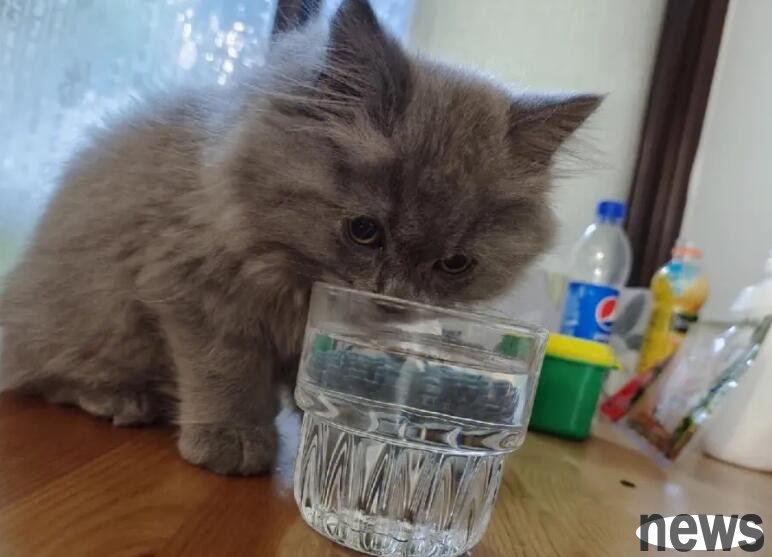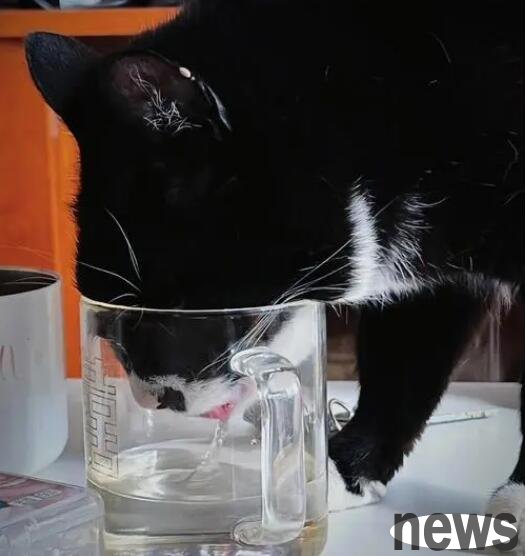Summer is here, and I believe many shovelers have put in a lot of effort in letting cats drink water. Because many shovelers know more or less that cat owners are prone to illness once they don’t like drinking water. Once they see them suddenly become like drinking water, they will be very pleased. I thought the cat had become sensible. Finally I can rest assured.
In fact, this is not the case. Sudden increase in drinking water is likely to be a sign of illness, and it is very likely to be caused by kidney failure! Masters, please be careful~
An adult cat, under normal circumstances, you need to drink about 200-300ml of water every day. If you observe abnormal behavior of a cat drinking water in large quantities, you should pay attention, because this may be a sign of kidney failure.

Cats suddenly start to drink cows, which makes the cat shovelers happy. You should know that drinking more water is also a disease. Compared with stray cats, domestic cats are more likely to have kidney failure
People with a little experience in raising pets know that the number one killer of domestic cats is kidney failure, and kidney failure and liver failure have always been at the forefront of the cause of death of pet cats. Most domestic cats who provide emergency treatment in pet clinics are due to acute kidney failure. Through research, experts found that even though most stray cats are thin, they rarely suffer from renal failure.
So why do domestic cats in good condition have high proportions of liver and kidney failure compared to stray cats?
Some veterinary scientists believe that long-term diets with low protein, high fat and high carbohydrate may be one of the causes of liver damage. In fact, this implies from a certain perspective that the wild food consumed by cats is less harmful to their internal organs.
The ancestors of cats were predators. The genes for predation in the wild have been written into the cat's body. Their body structure, health and the ratio of wild diet are inherently consistent. So they have the habit of ingesting water in food, rather than satisfying their needs by “drinking water.”
Cats enter the family as pets, which is only after the development of industrial society. This period of time is very short. Cats are genetically destined that their group has not been able to fully adapt to this ecological change.
Therefore, although stray cats are hungry and full, they live in the wild and often catch mice, rabbits, birds, insects, etc. to feed, and they have a rich variety, and do not eat too much grain carbohydrate and acquired processed products. The body's metabolism is normal, so the burden on the internal organs will naturally be smaller.
But on the other hand, the situation of domestic cats that are "raised" is completely different. Most shovelers lack the awareness of identifying cat food. In order to facilitate work, they usually accidentally choose bags of high-cereal cat food. The imbalanced distribution ratio and the water intake of cats completely rely on drinking water has caused huge kidney burden on them, so renal failure has become a common disease for domestic cats when they get older.

Renal failure is a very familiar name for cat owners, especially in older cats, with a higher incidence rate.
First, don’t panic, renal failure is divided into acute and chronic.
Acute is mild and easy to find. It usually occurs suddenly within a few days or weeks, with small kidney damage, which is usually caused by substantial injuries such as poisoning, infection, and ischemia. Because the onset time is short, timely treatment can still restore health.
And chronic things are often severe once discovered, because the kidneys often have irreversible damage. As for the causes of the disease, they are mostly related to body aging and organ decline, as well as kidney infections and blockages, congenital kidney malformations, tumors, etc.
Because cats have a strong ability to endure pain, their lifespan is often severely shortened when they are found.
The main symptom of renal failure is frequent urination. Because the kidney function is attenuated, the toxins and waste excreted through the urination will decrease. The cat will feel dehydrated and feel thirsty, and will want to drink more water. However, the water that is supplemented cannot eliminate the toxin waste, which is a vicious cycle; the accumulated toxins make the cat nausea and vomit, and it will gradually lose weight.
Therefore, you should pay attention to the cat's drinking water condition in daily life. When the cat has abnormal symptoms, seek medical treatment in time. Older cats need to be checked regularly. Although severe renal failure cannot be cured, it can be completely cured under prevention.
Raise cats scientifically and treat them rationally
Of course, if you suddenly find that your cat loves to drink water, don't be frightened immediately. The increase in water for cats may also be because the weather is hot, you need to replenish water, or get angry and your throat is dry, eating too salty food, etc.